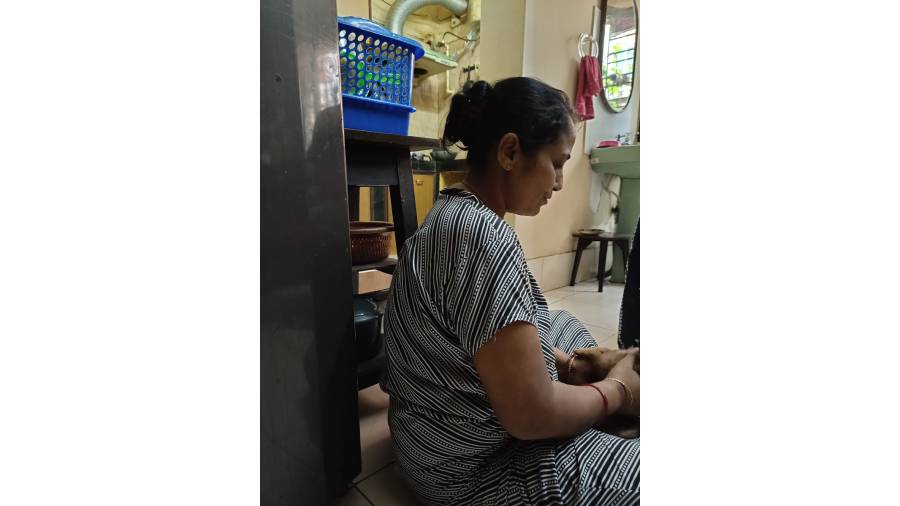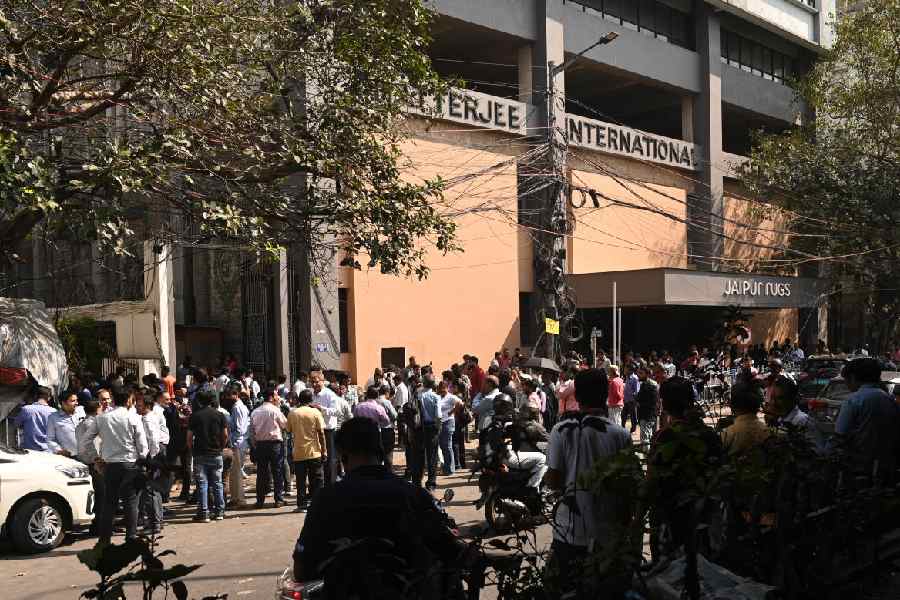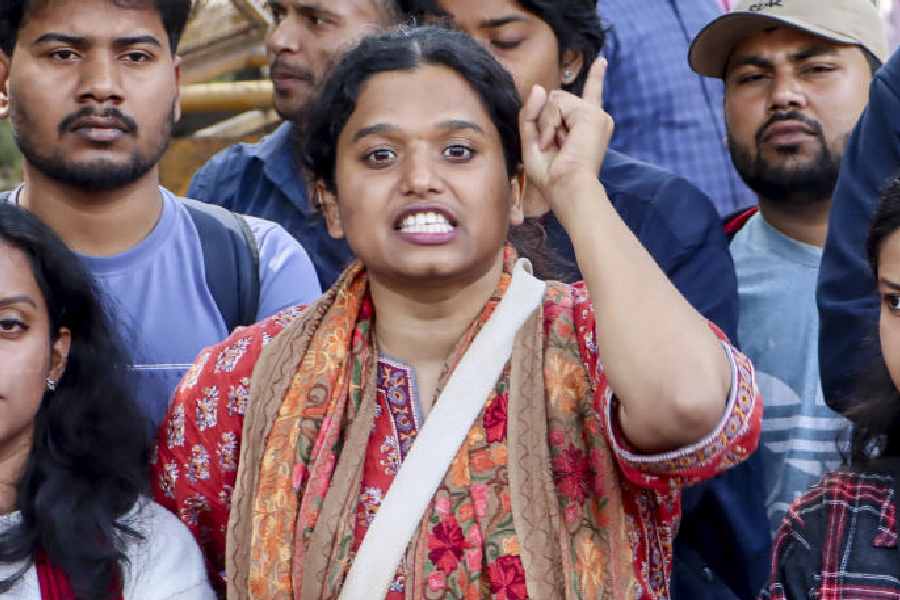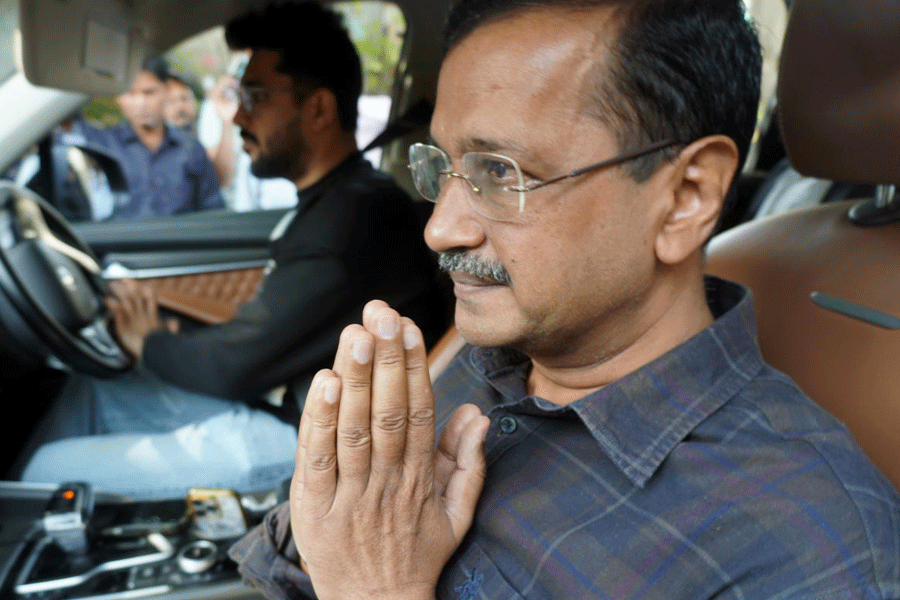She churns out the best loitya machh fries, makes a reluctant child finish his vegetables and may even surprise you with a can of beer on your special day. Anjana Sikdar, a domestic help, can also give it back to the entitled sort who rub her the wrong way. “Mind your own business,” she recently gave an earful to a memsaheb who lives in the building she works in. “Why does your tongue itch to tell me off?”
All that the spunky 47-year-old is capable of, however, is not the narrative. The real story lies in the long years behind her — her losses, desperations, loneliness and learning, underlined by an unfailing desire — “ektu bhalo thakbo... live a better life”.
Today Anjana is the proud owner of a house in Konnagar, about 40 kilometres from Calcutta. There live her two sons and their families. For neighbours and relations, she is the woman who has done it all, single-handedly.
The eldest of four siblings, Anjana spent her initial childhood elsewhere. “We had a bit of land but none to till; my father hardly shouldered any responsibilities. He used to sing kirtans as part of a wandering group and be gone for days,” she says. “Often we had nothing to eat. Ma would wade through waist-deep water, cut a handful of paddy from the field, de-husk it with her feet, dry it around the hearth for two days, and then boil it to feed our hungry mouths.”
One day, Anjana’s mother decided to move to some place where she could find work.
In Konnagar, a relation gave them shelter for a few days. Eventually, the mother found work in a karkhana that made conch-shell jewellery, and her father joined a shop that produced bamboo fencing. The house rent was Rs 25 per month; her mother earned Rs 30 a month and her father Rs 20 a day. When the parents went out to earn, the eight-year-old looked after her siblings, cooked and cleaned.
When women like Anjana tell their stories, one is at a loss. For no language can convey it like she does — it is she who owns the narrative; it’s her choice of words, cadences, hesitations and lumps in the throat.
Anjana recalls an incident from her early days in Konnagar like it happened yesterday. “I shall never forget that day when my baby brother, all of five months, was howling in hunger,” she says. “Carrying him on my hips, I ran out looking for Ma. But the place whirled like a hot maze, and I couldn’t find the gate to her factory. I started to cry in desperation. Someone may have carried the word because after a while I saw her running towards us. The three of us sat down in the shade of a tree; my poor brother drank from her, and slowly I found my feet.”
At 14 Anjana was married off to a 26-year-old, and by 19 she was mother of two. “There was never any serious problem between us, except in our thinking,” she says of her husband. “I’d see women whose chappals weren’t torn and their men wearing shirt-pant… I always dreamt of a life sans poverty, wanted my man to be sensible and willing. But he never had any such thoughts.”
Life threw many curveballs and perhaps without the young woman even realising it, aspiration turned into action. With her sons at her parents’, Anjana left home to see if she could change the course of her life. “I made mistakes, I was so young... It will take an entire book if I narrate the contents of every day, week and year,” she says, tears streaming down her cheeks.
Then, lighting up a bit, asks, “Do you know the first thing I did? I threw away my torn slippers and bought a new pair.” She arrived in Calcutta where an acquaintance took her in. For someone as determined, work wasn’t difficult to find, despite a few bad patches. Eventually, she got her documentation in order, availed of zero-interest loans and other panchayat schemes back home.
“I’ve worked in Marwari houses, Punjabi houses, south Indian houses and Christian houses,” she says proudly. She even worked outstation — in Pune, Ahmedabad and Jaipur — to help with a family wedding or baby-sit for a visiting couple. “Once I fell severely ill. There was no one at home except for their Alsatian. The dog simply wouldn’t leave my side. When my employers returned, I called a friend who took me away. I lost that job… I had jaundice.”
Back in Konnagar, her sons had started going to school. Her youngest sister, still not married, looked after them like her own. “One day all they had were a few eggs. ‘Don’t worry, didi,’ she said to me over phone. She borrowed some rice, and with the eggs and potatoes, made a whole hnari of jhol. That’s how she managed to feed the family two meals.”
“My father neither had the means nor the wish to marry her off,” she continues. “I took on extra work and by two years, had saved up some money with which I could arrange a modest ceremony... Her husband is a good man.”
What if life had offered Anjana an even playing field? She has no time for such questions though. Of late, she’s been acting on another desire — to learn to read and write.
When Anjana went to Konnagar to cast her vote in April this year, her elder daughter-in-law said something not many mothers-in-law can boast of. She said, “Tumi-i amader Mamata... You are our Mamata…”










